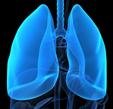Advertisment
Adjunctive inhaled mannitol improves lung function in cystic fibrosis

FDA Highlights – by Bruce Sylvester – Patients who received standard therapy for cystic fibrosis plus adjunctive inhaled dry powder mannitol have achieved sustained improvement in lung function for up to 52 weeks, researchers report.
The findings were published online on Dec. 16, 2011 by the American Journal of Respiratory and Critical Care Medicine.
In the double-blind study, investigators randomised 318 subjects to treatment with 400mg twice daily inhaled mannitol or 50mg bid inhaled mannitol (control group) for 26 weeks, followed by an additional 26 weeks of open-label active treatment. Mannitol was added to typical concomitant therapy, such as recombinant human deoxyribonuclease and inhaled antibiotics.
“Patients in the treatment group showed a 106.5mL mean improvement in forced expiratory volume in 1 second (FEV1), an 8.22% improvement from baseline, compared with a 52.4mL improvement (4.47%) in the control group,” said lead author Moira L. Aitken, MD, professor of pulmonary and critical care medicine at the University of Washington Medical Center in Seattle. “Forced vital capacity increased 136.3mL in the treatment group, compared with 65.0mL in the control group. Treated patients also experienced fewer pulmonary exacerbations than controls.”
Difference in absolute FEV1 between study groups approached statistical significance (p=0.059), and difference in relative change from baseline FEV1 between groups reached significance (p=0.029).
The treatment group maintained improvements in FEV1 during the 26-week open-label extension phase of the study. In the control group, mean FEV1 improved 84.0mL (6.3%) from baseline during the open-label phase. Patients in the treatment and control groups experienced similar rates of adverse events. Compliance was 85.2% in the treatment group and 88.7% in the control group.
The authors noted that, while the primary end point for the study, the difference in absolute FEV1 between the treatment and control groups, did not reach significance, this result might have been due to use of a single baseline visit to establish baseline FEV1 values. When baseline FEV1 values were calculated as an average of FEV1 values over two baseline visits, overall increase in absolute FEV1 was significantly (p=0.0008) greater in the treatment group.
“In our patients with cystic fibrosis, treatment with inhaled mannitol resulted in sustained improvements in lung function over 12 months, with a favourable safety profile,” said Dr. Aitken. “In addition, the dry-powder inhaler used to administer mannitol is small, portable, easy to use and doesn’t require thorough cleaning and disinfection after each use, which may help patients better adhere to treatment. Our results support the use of inhaled mannitol for the daily management of cystic fibrosis.”





